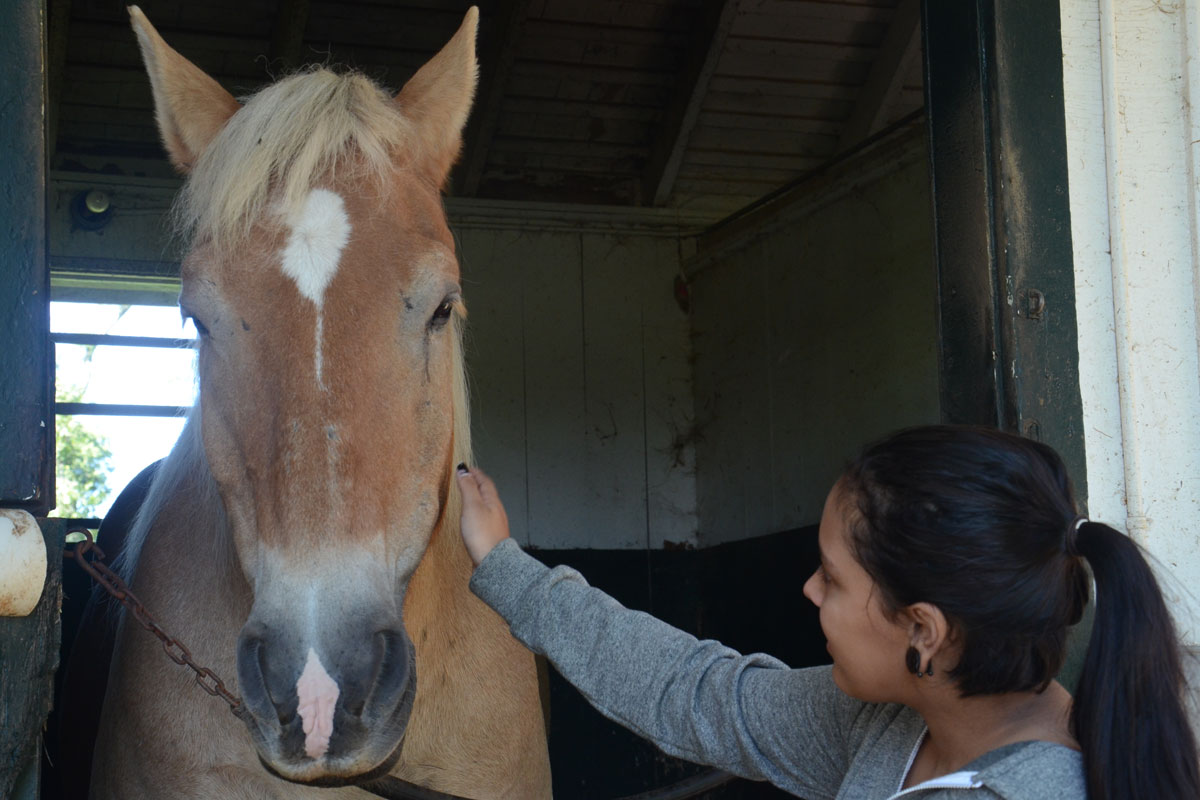While all kids benefit from their relationships with animals, animal-assisted therapy is an especially important tool for children and teens who are on the autism spectrum or who have other special needs or emotional issues such as depression, anxiety or social isolation. Pets help youngsters not only to feel loved, but also to help them open up, learn to bond and decrease their level of stress.
When Bideawee visited North Shore Child & Family Guidance Center with their therapy dogs, one very shy girl who barely spoke lit up when she saw the dogs enter the room. “She asked me if she could go pet the dog, and I told her she needed to ask the volunteer,” explains Lee Holtzman, who heads up the Guidance Center’s Family Advocacy Program. “Normally, it would have been almost impossible to get this girl to speak with someone she never met, but her desire to spend time with the dog was so strong that it helped her overcome her fears and speak with the volunteer.”
The therapy dogs also helped calm down a boy who has impulsivity issues and tends to be very loud. “We explained how dogs get startled by very loud noises or sudden movements, and that helped him learn a lesson about behaving appropriately in a calm manner,” says Holtzman. The goal is that the lessons the children learn working with pets can be carried over into their lives.
A trip by teens from our Latina Girls Project offers another example of how working with animals can be transformative. The girls, many of whom suffer from depression and anxiety, are typically shy and withdrawn when they first come to the Guidance Center, so some of our therapeutic goals are to help them get in touch with their feelings, develop self-esteem, bond with each other and with their therapists, and learn skills to help them navigate life and heal their inner wounds.
Associate Executive Director Regina Barros-Rivera took the girls to HorseAbility Therapeutic Riding Program in Old Westbury, an equine therapy program designed to promote the physical, psychological, emotional, social and spiritual well-being of its participants, many of whom are special needs children and teens.
Of the 18 girls who went on the trip, only one had been on a horse before, so many of the girls expressed trepidation. The volunteers at HorseAbility showed the teens what they would be doing that day, including riding, guiding the horses through an obstacle course and learning to groom and feed them.
The volunteers told the girls each horse’s story; many are rescues. The girls quickly bonded with these beautiful animals, and all were moved by the fact that the horses had faced difficulties in their lives, just as the girls do.
“We saw incredible growth in several of the girls through the experience,” says Barros-Rivera. “One teen who tends to isolate and act as if she doesn’t care about anyone walked over and hugged another teen whose anxiety about riding had her sobbing and shaking. It was a very powerful moment for both of them and one that can create lasting growth.”
For all children, teens and adults, too, animals are a true treasure, helping all of us become better human beings.














